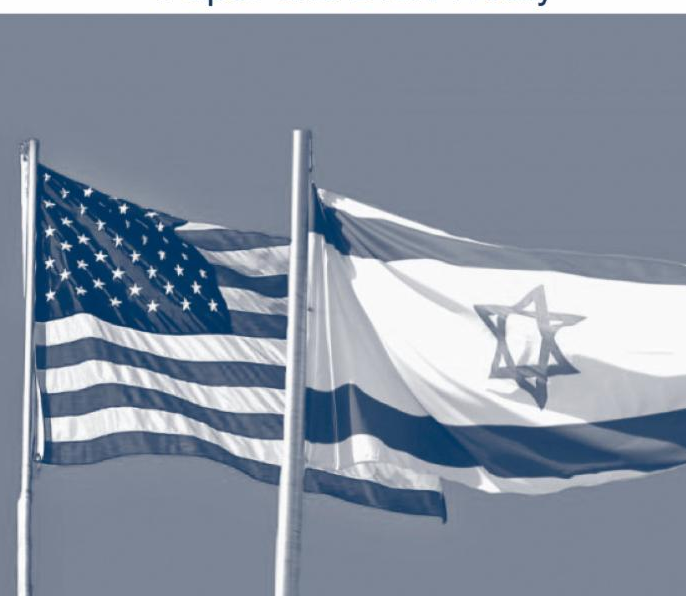The U.S. has mutual defense pacts with NATO, the Philippines, South Korea, Australia, New Zealand and Japan — along with the 1947 Rio Treaty that vows an attack on any country in the Americas is an attack on all of them.
A think tank in the District of Columbia says it’s time to add Israel to the list.
In a report released Thursday, the Jewish Institute for National Security of America said a “carefully tailored” mutual defense treaty would contribute to regional stability in the Middle East and enhance the national interests and military capabilities of Washington and Jerusalem.
Israel Prime Minister Benjamin Netanyahu has discussed the prospects for a bilateral military alliance with President Biden and former President Donald Trump, JINSA said in “By Itself, With U.S.: The Case for a U.S.-Israel Mutual Defense Treaty Post 10/7.”
“In light of Oct. 7, including the subsequent multifront war that Israel has faced against Iran and its proxies, and the ups and downs experienced by the U.S.-Israel relationship, the rationale for formalizing a U.S.-Israel alliance and significantly deepening the two countries’ commitment to each other’s mutual security is stronger than ever,” JINSA said in the report.
This isn’t the first time JINSA has argued for a mutual defense treaty between the U.S. and Israel. The think tank has been pushing for a formal military pact since at least 2018.
However, the need became more urgent after Hamas terrorists rampaged into southern Israel from the Gaza Strip, killing more than 1,200 people and triggering a war now in its second year. The attack traumatized Israeli society, shattering its confidence in its security and well-being, JINSA said.
The months that followed the attack also further underscored the vital importance of the United States rapidly providing weapons deliveries, deterring Iranian proxies on multiple fronts, defending against direct Iranian attack, and blunting international political pressure and legal charges,” the report said. “JINSA believes that one of the most powerful ways to signal that the United States stands firmly beside Israel at this critical and dangerous moment would be to transform one of its most capable global partners into an invaluable ally through a mutual defense treaty.”
JINSA officials warned that support for Israel in Washington has gradually eroded, from robust backing in the months immediately following the Oct. 7, 2023, attack to “mounting hesitation, public criticism, ‘bothsidesism’” and even pauses or slowdowns in weapons deliveries.
They said the frequent tension between the White House and Mr. Netanyahu’s government only serves to embolden Iran and its proxies, including Hamas, Hezbollah and Yemen’s Houthi rebels.
“The more daylight that exists between the United States and Israel, the more Iran and its proxies are emboldened to provoke, destabilize and wreak violence. Conversely, the less such daylight between the two partners, the greater chance for regional peace and stability,” JINSA said.
The think tank said Israel has proved that, with proper American resupply and backing, it can “push back forcefully” against the Iranian threat network on multiple fronts without requiring U.S. boots on the ground.
“An Israel that emerges from the horrors of Oct. 7 stronger, having defended itself, and with the United States staunchly by its side, will be an Israel with which its Arab neighbors, Saudi Arabia foremost among them, will want to make peace,” JINSA said. “All this can be empowered by a U.S.-Israel” mutual defense treaty.
Originally published by The Washington Times.

